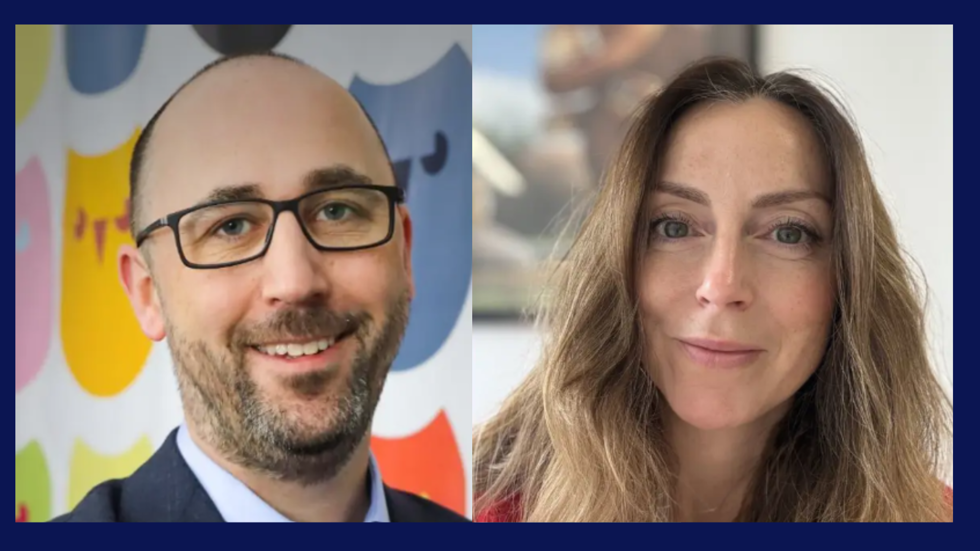After members of the screen industry met in Sheffield this month for the Children’s Media Conference, we’re exploring some of the activities and opportunities supported by the Animation and Children’s TV Skills Funds.
Both Funds use contributions from production companies specialising in content for young audiences to invest in training for those looking to enter or progress within a career in screen.
Members of each skills fund attended this year’s conference, where the Animation Skills Fund sponsored the Shake It Off! A Pre-CMC Gathering event. It offered attendees the chance to join small groups of industry peers and discuss topics within an ever-evolving industry. Guests were invited to join groups to hear advice, professional insight, ask questions or just join in the discussion. Five dedicated groups focussed on writing, composing, voice over, producing and animation, the latter welcoming ScreenSkills’ Kieran Argo to the panel of experts.
The Children’s TV Skills Fund created a digital suggestion box for the conference, allowing those from across all levels of the industry to have their say on what support they would like to see made available and share their experiences of the industry.
Responders were invited to highlight particular training needs, industry trends or challenges they would like to be explored. Their answers will help inform how the Skills Fund supports the workforce in this sector progress their careers.
DreamBIG!

In 2024/25 the Children’s TV Skills Fund partnered with the Animation Skills Fund for the first time on flagship new entrant initiative, DreamBIG!. The programme provides a foot in the door for those looking to make their start in animation and live action children’s TV, offering placements at production companies and animation studios specialising in making content for children and young audiences. Successful candidates receive a 3-6 month paid placement in trainee production roles alongside training and support from thinkBIGGER!.
Holly Jasmine Kilvington was a member of the graduating cohort and received a placement as a production coordinator with BBC Studios. She said: “The networking opportunities and industry training through DreamBIG! were invaluable. Learning from experienced professionals, gaining industry insights, and developing technical skills gave me the confidence to step into industry roles. But what truly stood out was the personalised mentorship and ongoing support.”
For fellow cohort member, Brandon Zapata, who received a placement as a production assistant with animation company Magic Light, the mix of practical placement and guided training proved a real benefit.
He said: “The training was really, really helpful. I knew about animation and being an animator and that side of it, but never production. I didn't realize there was a completely separate thing. The training completely blew my mind because it went into so much detail, in so many skills that we were taught. It really, really helped a lot. It prepared me really well for when we started the placement because I already felt like I already knew kind what I was doing.”
Eline van der Velden is a member of the Children’s TV Skills Council and the founder of Particle6, a production company at the forefront of using technological advances within production. She worked with the Fund to offer placements to candidates on DreamBIG!, and told us how those placements have turned into permanent positions.
“We took part in the Dream Big programme last year and we got a wonderful employee called Louise. We also got another one through another placement who is brilliant development producer. I find the people I get through ScreenSkills incredible. What's great about the placement is they do the training and then they subsidise the placement for a bit. So as an employer, you're incentivized to take someone on. The relationship just develops very naturally and they naturally become an employee over time. It works for both parties so well because they get training, which helps them, and it helps us as employers that they get training and you don't have to think about it.”
Applications for this year’s programme are now open, with placements provided in at companies to successful candidates in roles across children’s TV and animation.
Find out more
Learn how to take part in the next DreamBIG!
Trainee Finder
Aspiring new entrants can get further support through the Animation Trainee Finder programme. The two-year paid placement initiative provides candidates with trainee placements across 2D and 3D animation, stop motion animation and storyboard artist alongside production, art department and edit departments.
The programme will be returning this autumn with applications opening in September for 25 trainees to secure a two-year places on the programme.
Get the knowledge
Developed by the Children’s TV Skills Fund, the Get the Knowledge training series provides valuable learning opportunities for experienced professionals as well as those who haven’t worked with children before. A two-part working with under 18s course, led by industry leading experts on child content, welfare and compliance, covers essentials including how best to work with chaperones, policing crew behaviour, licencing and best working practices.
An additional course for executives is aimed those working at production manager, producer, executive producer, head of production and managing director level in both scripted and unscripted.
Webinar: journey of an animation production manager
A journey of an animation production manager webinar, offered by the Animation Skills Fund, aimed to share some industry insight for aspiring animation professionals, especially those from minority ethnic backgrounds.
Producer Omari McCarthy sat down with animator, entrepreneur, and recent Animation Studies Lecturer Nathan Addai to discuss and demystify the nuances of animation production. They offered insights from Black perspectives and shared advice for those who wish to grow into influential roles in the industry.
Discover more
Read more about the webinar
Skills councils
Training created by both skills funds are guided by those working in senior positions across the industry via the working groups and skills councils, allowing investment to be made in areas where it will be most keenly felt.

Gavin Halpin, managing director of animation company Paper Owl Films, is a member of the Animation Skills Council. In a recent Q&A he spoke about his reasons for joining and the importance of the Fund’s work in training the workforce, explaining: “I've always believed in skills and training. It is a complicated ecosystem and it does require a lot of different people doing a lot of different things. An organisation like ScreenSkills can bring that umbrella-type strategy.”
Fellow council member Vici King spoke of the benefits to production companies that contribute to the Fund: “UK production companies pay into the Fund from current productions and are then able to access a range of fantastic training initiatives industry wide and bespoke that will enhance their crew and benefit their productions. Animation takes a long time so it’s an amazing place to develop talent and skills. With ScreenSkills’ support this makes it more financially viable to access that training in increasingly tough budgetary environments.”
A recent ScreenSkills podcast episode focused on children’s content and featured a conversation between ScreenSkills Animation Training Liaison Manager, Kieran Argo, and skills council member, Helen Brunsdon, consultant, producer and animation executive. The pair discussed the state of the industry, new developments and how tailored training is opening doors to entry and progression within animation. Helen said: “Paying into that Fund is crucial going forward to help maintain all the fabulous work that you guys do at ScreenSkills. I think what's really interesting about the work that you've done there is that it can appeal to new entrants through to more established industry workers. So that's what I'm always keen to see the variety of tailored support that you can get for the industry through different courses."
